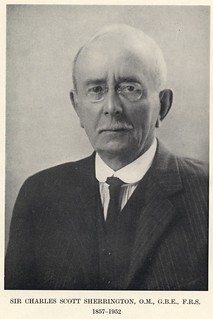- No links match your filters. Clear Filters
-
Created
 W. McDougall, 'William McDougall', in C. Murchison (ed.) A History of Psychology in Autobiography' (Vol. I) (Clark University Press; Worcester, MA, 1930), pp. 191-223.
W. McDougall, 'William McDougall', in C. Murchison (ed.) A History of Psychology in Autobiography' (Vol. I) (Clark University Press; Worcester, MA, 1930), pp. 191-223.
1930
Description:'I entered the recently constituted University of Manchester at the absurdly early age of fifteen years and attended there during four years, continuing to live at home.' (194)
'in December of 1889 I presented myself for the scholarship examination at St. John's College, Cambridge, and was offered a scholarship which I eagerly accepted... And so in the fall of 1890 I went up to Cambridge to make a new start, and, as it seemed to me, on a higher plane.' (196)
'[After coming 'very near' (197) to obtaining the highest mark in the natural sciences Tripos,] I now had two years begore me in which to specialize in physiology, anatomy, and anthropology, these being my chosen subjects for the second part of the Tripos... In 1894 I passed the second part of the Tripos with the highest honours obtainable and secured the university scholarship at St. Thomas' Hospital, London.' ([197-]198)
Describes expedition to Torres Straits as part of the 'Cambridge Anthropological Expedition' (with A.C. Hadddon and W.H.R. Rivers). (201-202)
'I decided I must make first-hand acquaintances with the psychology and psychologists of Europe... I chose to sit under G.E. Müller at Göttingen, then the leading exponent of the exact laboratory methods in psychology. My choice was partly determined by what might seem an irrelevent consideration. I had, against my principles, fallen suddenly in love and become engaged to marry; and Göttingen promised to be a better scene for a year's honeymoon than Paris, Vienna, or other large city.' (203)
'At University College, London, James Sully had acquired, when Münsterberg went to Harvard, the apparatus which that distinguished pioneer had gathered in his laboratory at Freiburg. Sully's knowledge of the filed of psychology was wide and deep, but he had not the least training for laboratory work. He desired to find a man to teach laboratory methods and had invited me to attempt this task. I undertook to give each year a short course of lecture-demnonstrations, one meeting a week during one term only and at a nominal salary... we returned to England and settled at the end of 1900 in a delightfully situated small house on the Surry downs near Haslemere... my chief work of this, my most productive period, was experimental. I made a laboratory of two attic rooms in my house; and there during four years I carried on the most enjoyable and profitable of my experimental researches, mostly in the field of vision.
As I conceived it, I was carrying on my attack on the secrets of human nature along both the possible lines. I would burrow in from below by penetrating the nature of the retino-cerebral processes. I would at the same time approach those secrets from above by continuing to study the phenomena of attention.' (205)
'There were only two or three persons in Great Britain interested in the special problems with which I was busy. German academic circles were hardly accessible to British contributions; those of America were dominated by the Germans; and, in both, Hering's views were orthodox... As regards the general functioning of the brain, I could not accept the view, then and still now current among the physiologists, namely, that each neuron merely transmits to its neighbours a stimulus. It seemed to me clear that the beginning of all understanding of brain-functioning was to regard the brain as the sear of action of fields of energy, within which fields there was widespread reciprocal influence and free flow of energy from part to part.' (206)
'During my teaching at University College, a little group of persons interested in psychology began to gather for informal discussions in my laboratory. After a time we made ourselves into a formally constituted group, the British Psychological Society, with, I think, twelve original members; and presently we held larger and more formal meetings in various centers, and undertook to publish a journal, the British Journal of Psychology.' (206)
-
Sent
 McDougall to Sherrington - 22 December 1926 (I-2-156 (iii))
McDougall to Sherrington - 22 December 1926 (I-2-156 (iii))
Approx. 22 Dec 1926
Florence, Italy
Information
Links
Menu







